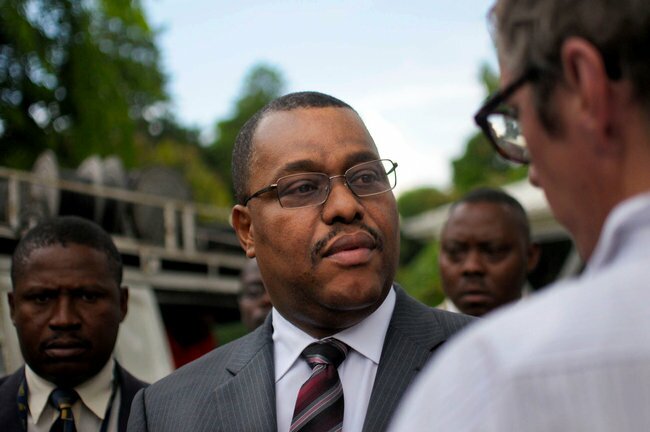Haiti’s Prime Minister calls for capacity building, ownership of aid
 Garry Conille Photo Credit Swoan Parker/Reuters |
Prior to January 10, 2010, the day the earthquake struck Haiti, 75% of health services were delivered by NGOs and faith-based groups outside the Ministry of Health’s guidelines and regulations. And the health sector was not the only part of the Haitian government lacking control over a large number of NGOs. Most government institutions were weak as thousands of NGOs provided the majority of public services. Many called Haiti, the poorest country in the western hemisphere, the “Republic of NGOs.”
Because of the lack of government capacity, the Pan American Health Organization’s (PAHO) report, “Health Response to the Earthquake in Haiti,” stated that such a natural disaster could not have happened in a more vulnerable environment, “When the needs are compared to the national response capacity, this disaster was truly unprecedented.”
Now, two years after the earthquake and the influx of even more aid organizations, Haiti wants to oversee the programs. At a recent Oxfam roundtable discussion that included Prime Minister Garry Conille and 17 large NGOs operating in Haiti, Conille stressed the need for aid to be coordinated under government plans.
“It’s less about sending us the resources, but giving us the ownership, the oversight, and the – I don’t want to say the word control because that’s not quite it – the whole effort. And then you become a part of the effort – a part of the team. That comprehensiveness would work until we slowly build enough capacity for greater budget support, which is ultimately what we want to reach,” Conille said.
Haiti’s efforts to coordinate all health care initiatives in the country are part of a global movement for greater country ownership of health care in the developing world. At a MLI Roundtable last month, senior US officials and senior leaders at ministries of health around the world agreed that both donors and developing country leaders need to work more closely together under the guidance of national plans for health care.
Haiti’s Conille emphasized that aid should help build capacity within all government structures and systems. Long gone should be the days of projects coming and going without sustainable results, he said.
“If you come to Haiti and help me do anything, you include as a performance indicator transfer of functions,” Conille said. “You basically want to make sure that when you leave, someone else in Haiti or some entity in Haiti is able to do what you are doing. If it’s a performance indicator, I’m guessing you would budget for it. This would mean that you are actually committed to working your way out of a job or at least out of that part of a job.”
Working with country systems, as Conille suggested, can speed up the process of country ownership. At the MLI Roundtable discussion, one of the strongest advocates for country ownership, Ethiopia’s Minister of Health, Tedros Adhanom Ghebreyesus, said: “If the aid can go through the country system, it can be even more impactful. Not only will aid be based on a clear strategy, but it also should use the country system. If the country system has problems, you shouldn’t abandon it; we should fix it and use it.”
Haiti can be seen as a wake-up call for development partners to fix, build and use country systems. The PAHO report stated, “One of the key lessons to be re-learned from the Haiti earthquake is that coordination can only be effective if the national authorities (civil protection, health, and other line ministries) are equipped and truly assume the ultimate leadership and authority for coordination.”
Prime Minister Conille knows this lesson and is striving to change how Haiti operates in the future. Development partners should follow his lead.
Keyword Search
MLI works with ministries of health to advance country ownership and leadership. This blog covers issues affecting the ministries and the people they serve.
Connect with Us
![]()
![]()
Categories
Blogs We Like
- Africa Can End Poverty
- Africa Governance Initiative
- Behind the Numbers
- CapacityPlus
- Center for Global Health R&D Policy Assessment
- Center for Global Development: Global Health Policy
- Center for Health Market Innovations
- Global Health
- Global Health Hub
- Global Health Impact
- The New Security Beat
- PAI Blog
- RH Reality Check
- Save the Children
- Transparency and Accountability Program
Contact Us
Please direct all inquiries to
